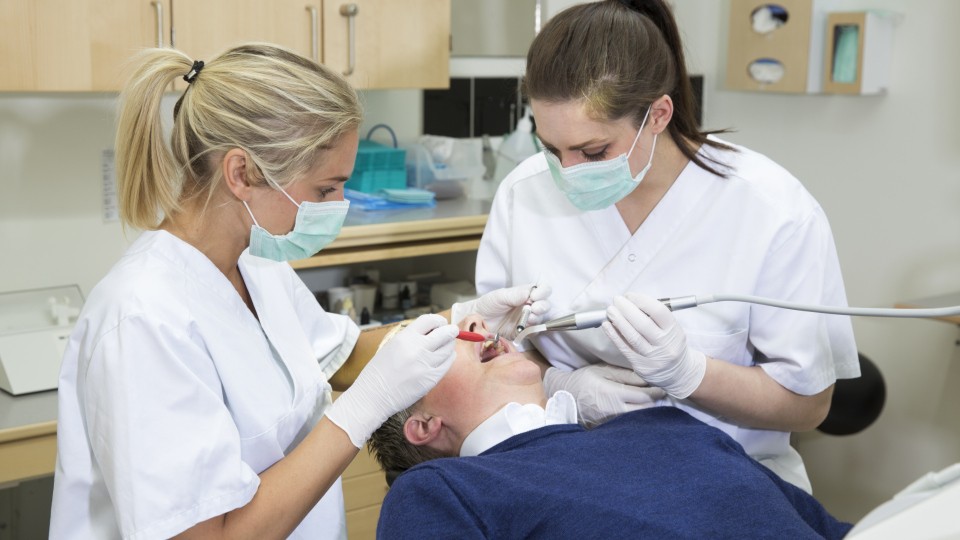Dentists, General
Dentist, Family Dentist, General Dentist, Pediatric Dentist
 Select a military branch to see samples.
Select a military branch to see samples.
Dental Assistant; Dental Assistant Craftsman, Dental Hygienist; Dental Assistant Journeyman, Dental Hygienist; Dentist; Dentist, Dental Materials Science; Dentist, Oral and Maxillofacial Radiology (OMR); Endodontist; Oral and Maxillofacial Surgeon, Facial Esthetics; Orthodontist; Prosthodontist
Comprehensive Dentist; Dental Corps Officer; Dental Specialist; Endodontist; General Dentist; Oral and Maxillofacial Surgeon; Oral Pathologist; Pediatric Dentist; Periodontist; Prosthodontist
Health Services Technician
No similar titles were found.
Advanced Dental Assistant; Comprehensive Dentist; Dental Hygienist; Dental Technician, Basic; Endodontist; Operative Dentist; Oral Maxillofacial Surgeon; Orofacial Pain Specialist; Pediatric Dentist; Prosthodontist
Dentist; Dentist, Advanced Clinical; Dentist, Comprehensive; Dentist, Dental Materials Science; Dentist, General Clinical; Dentist, Hospital Dentistry; Dentist, Oral and Maxillofacial Radiology (OMR); Dentist, Public Health; Dentist, Temporomandibular Disorders (TMD); Pediatric Dentist
What they do:
Examine, diagnose, and treat diseases, injuries, and malformations of teeth and gums. May treat diseases of nerve, pulp, and other dental tissues affecting oral hygiene and retention of teeth. May fit dental appliances or provide preventive care.
On the job, you would:
- Use masks, gloves, and safety glasses to protect patients and self from infectious diseases.
- Examine teeth, gums, and related tissues, using dental instruments, x-rays, or other diagnostic equipment, to evaluate dental health, diagnose diseases or abnormalities, and plan appropriate treatments.
- Administer anesthetics to limit the amount of pain experienced by patients during procedures.
Knowledge
Health
- medicine and dentistry
Business
- customer service
- management
Arts and Humanities
- English language
Math and Science
- biology
Skills
Basic Skills
- thinking about the pros and cons of different ways to solve a problem
- keeping track of how well people and/or groups are doing in order to make improvements
Problem Solving
- noticing a problem and figuring out the best way to solve it
Social
- looking for ways to help people
- understanding people's reactions
Abilities
Hand and Finger Use
- put together small parts with your fingers
- keep your arm or hand steady
Verbal
- communicate by speaking
- listen and understand what people say
Ideas and Logic
- notice when problems happen
- make general rules or come up with answers from lots of detailed information
Attention
- pay attention to something without being distracted
Personality
People interested in this work like activities that include ideas, thinking, and figuring things out.
They do well at jobs that need:
- Empathy
- Stress Tolerance
- Self-Control
- Achievement Orientation
- Cautiousness
- Integrity
Technology
You might use software like this on the job:
Medical software
- eClinicalWorks EHR software
- Henry Schein Dentrix
Spreadsheet software
- Microsoft Excel
Office suite software
- Microsoft Office software
Education
Education: (rated 5 of 5)
doctoral degree
usually needed
usually needed
Job Outlook
Average
New job opportunities are likely in the future.
Explore More
You might like a career in one of these industries:
See more details at O*NET OnLine about Dentists, General.





